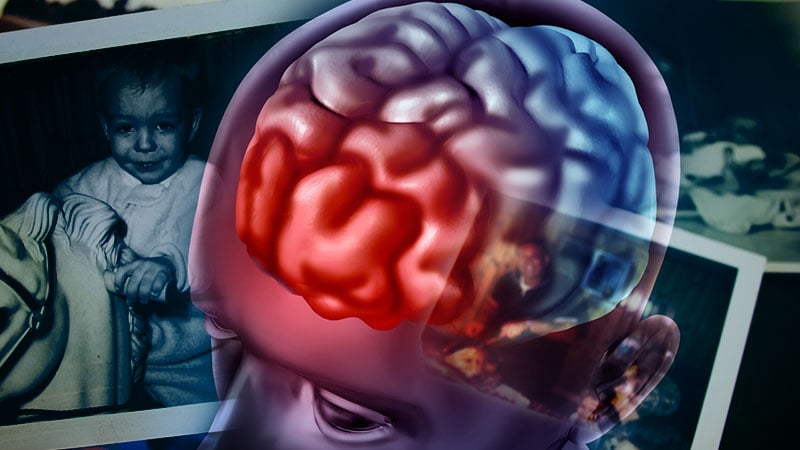A history of traumatic brain injury (TBI) is associated with a 33% increased risk for schizophrenia and a 78% increase in bipolar disorder (BD), with the strongest link in older adults, women, and those with severe TBI, new research suggested.
“Findings indicate that TBI is a risk factor for both schizophrenia and [BD] with differential impact by age, severity, and sex, and that this association cannot be explained by familial confounding alone,” investigators led by Kai-Yuan Cheng, MD, PhD, of the Department of Medical Epidemiology and Biostatistics, Karolinska Institutet, Stockholm, Sweden, wrote.
“The associations between TBI with schizophrenia and [BD] risks call on clinicians to monitor clinical course and potential psychiatric symptoms in people with a history of TBI, particularly the vulnerable groups identified in our study,” they added.
The study was published online on June 2, 2024, in Psychiatry Research.
Conflicting Findings
TBI is associated with elevated risk for several psychiatric conditions, including depression, anxiety, posttraumatic stress disorder, and suicidality, but evidence linking TBI to the risk for schizophrenia and BD has been based largely on small studies and yielded conflicting results.
The researchers identified 4184 individuals with schizophrenia and 18,681 with BD from Swedish national registries. Patients were aged ≥ 15 years at first diagnosis and born between 1973 and 1998.
Controls included 20,920 controls with schizophrenia and 93,405 patients with BD who were matched with controls by birth year, sex, and birthplace. They also matched cases with siblings who had neither disorder.
Those with schizophrenia were predominantly men (66% in the case-control group and 57% in the sibling group), while women predominated in the BD samples (66% in case-controls and 56% in the sibling group).
Within all samples, the proportion of individuals who had experienced TBI was consistently higher among cases vs control individuals.
In the nested case-control samples, experiencing any TBI was associated with a significantly higher risk for schizophrenia (incidence rate ratio [IRR], 1.33) and BD (IRR, 1.78; both P <.001>
Moderate and severe TBI vs mild TBI were associated with higher relative risk for schizophrenia and BD, and later age vs earlier age at first TBI (≥ 15 years) was associated with a higher risk for both conditions.
TBI CharacteristicSCZ aIRR (P value)BD aIRR (P value)SeverityMild: 1.31 (<.001>Moderate/severe: 1.47 (=.013)
Mild: 1.75 (<.001>Moderate/severe: 1.95 (<.001>Later age≥ 15 years: 1.51 (<.001>≥ 15 years: 2.25 (<.001>IRR=adjusted incidence rate ratio; BD=bipolar disorder; SCZ=schizophrenia; TBI=traumatic brain injury
“A dose-response relationship is an important element in establishing a causal relationship as it yields evidence of potential biological plausibility and gradient,” the researchers wrote.
The sibling comparison samples, designed to adjust for familiar confounding, yielded hazard ratios (HRs) that complemented findings, with TBI remaining significantly associated both with schizophrenia and BD (adjusted HR [aHR], 1.38; P =.002 and aHR, 1.55; P <.001 respectively severity and later age of tbi were also associated with stronger risks for both conditions.>
The association between TBI and BD was significantly stronger in women vs men, which applied to any TBI exposure and TBI sustained at different ages. However, the pattern of excess risk for women in schizophrenia was not statistically significant.
Limitations included the fact that primary care diagnoses were not included in the data, and outpatient diagnoses were only recorded from 2001 — which may have led to missing milder TBI exposures and some outcome diagnoses. In addition, data on family design were not comprehensive, and siblings born at different times may not have grown up in the same environment.
Lastly, it was not possible to completely rule out the potential biases of residual confounding effects — especially reverse causality.
The researchers suggested the findings underscore the need for further research establishing a “clear pathophysiological mechanism” between TBI and severe mental illness.
This work was supported by the US National Institute of Mental Health and a grant from SFO Epidemiology. The authors reported no relevant financial relationships.
Batya Swift Yasgur, MA, LSW is a freelance writer with a counseling practice in Teaneck, New Jersey. She is a regular contributor to numerous medical publications, including Medscape Medical News and WebMD, and is the author of several consumer-oriented health books as well as Behind the Burqa: Our Lives in Afghanistan and How We Escaped to Freedom (the memoir of two brave Afghan sisters who told her their story).
>>> Read full article>>>
Copyright for syndicated content belongs to the linked Source : Medscape – https://www.medscape.com/viewarticle/tbi-linked-higher-risk-schizophrenia-bipolar-disorder-2024a1000bbo
